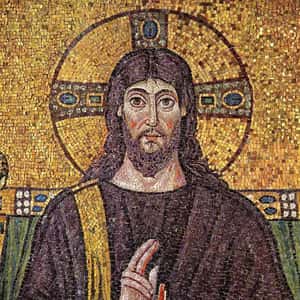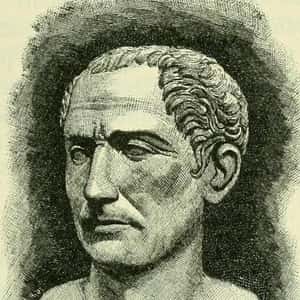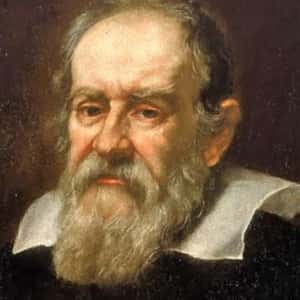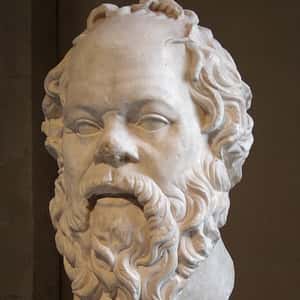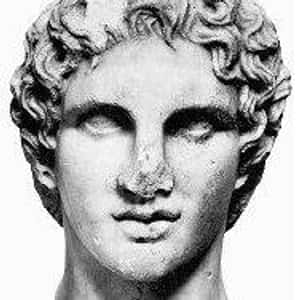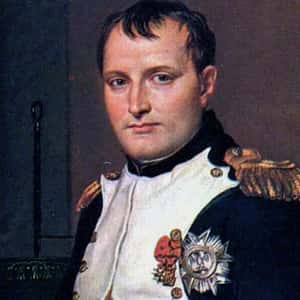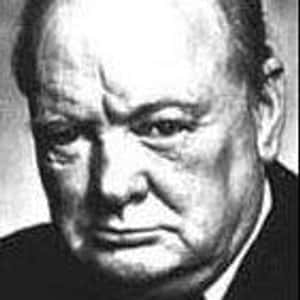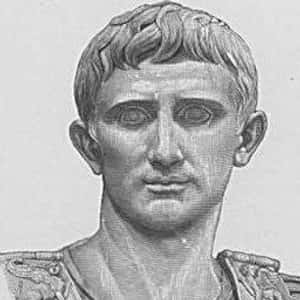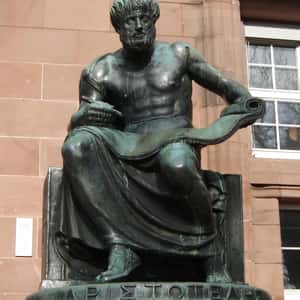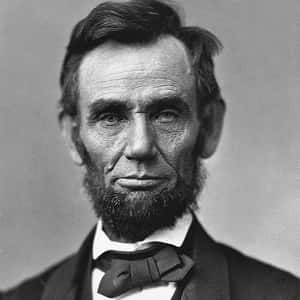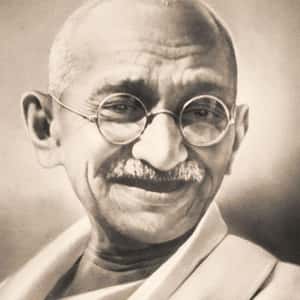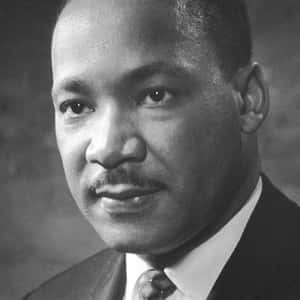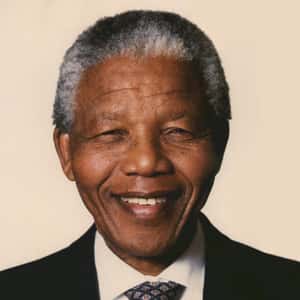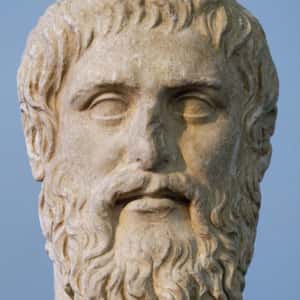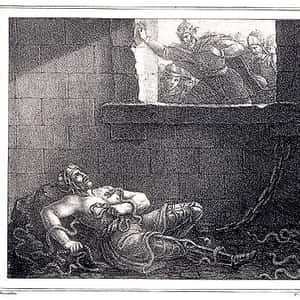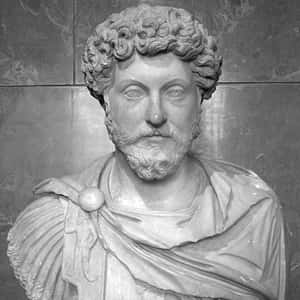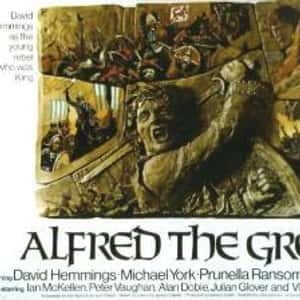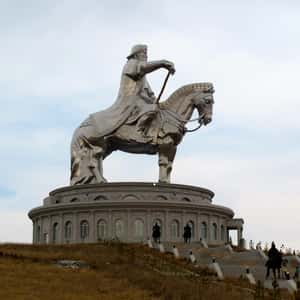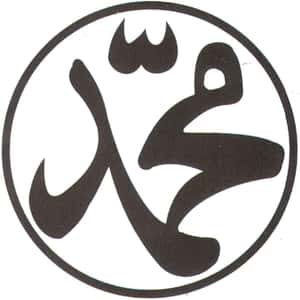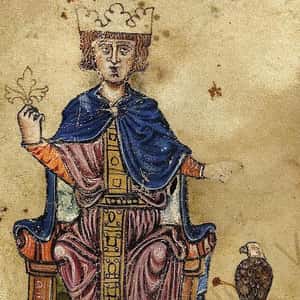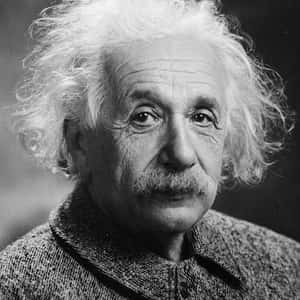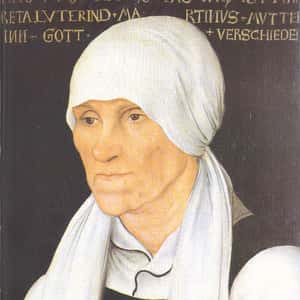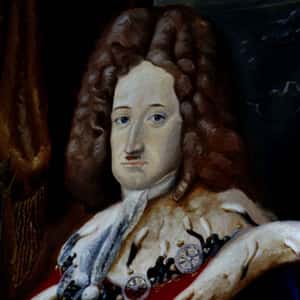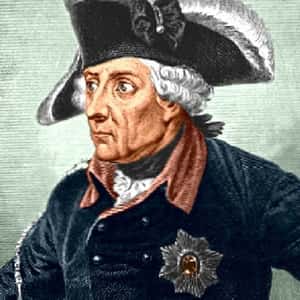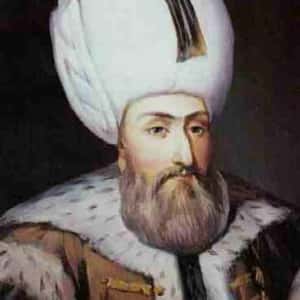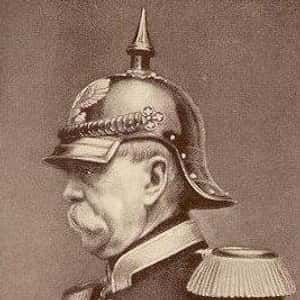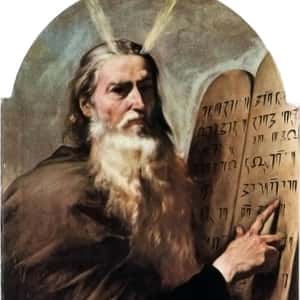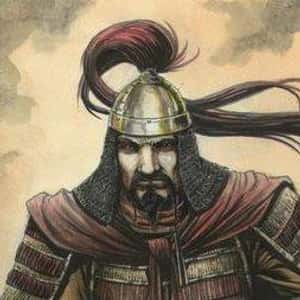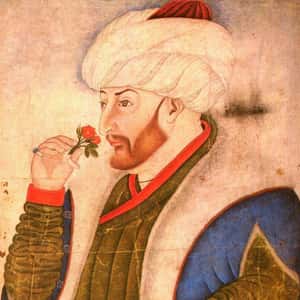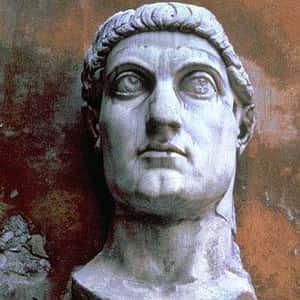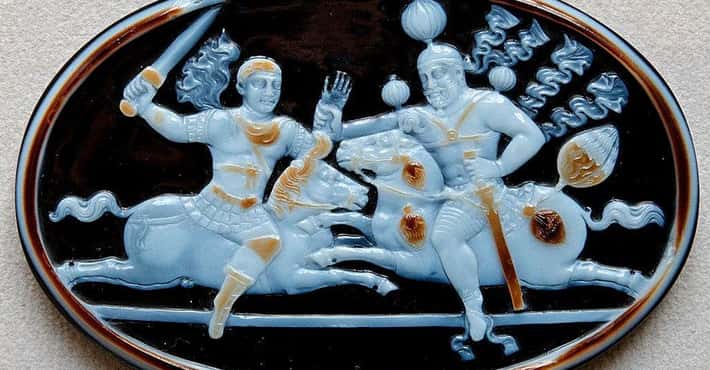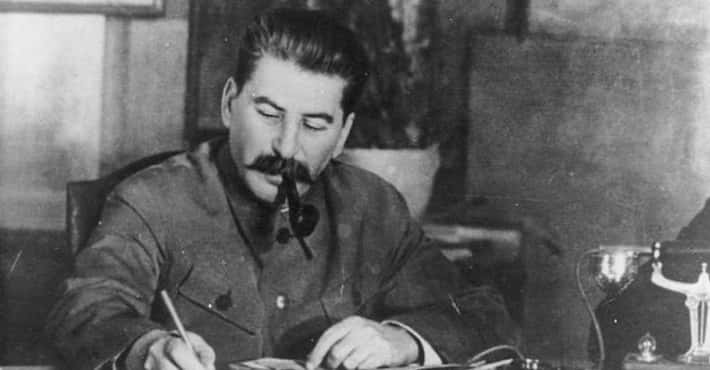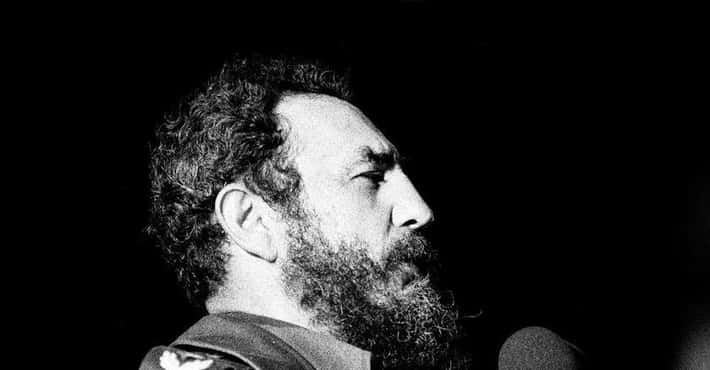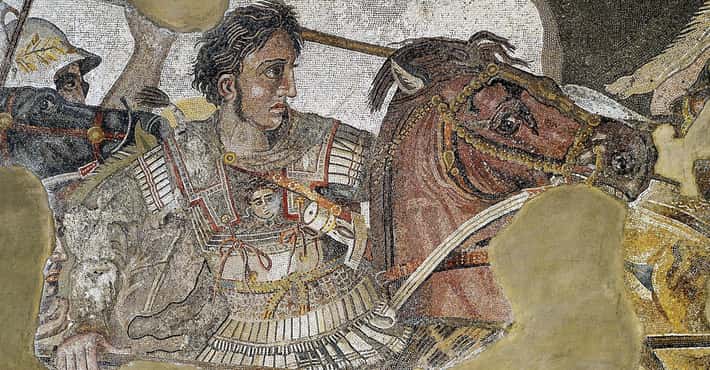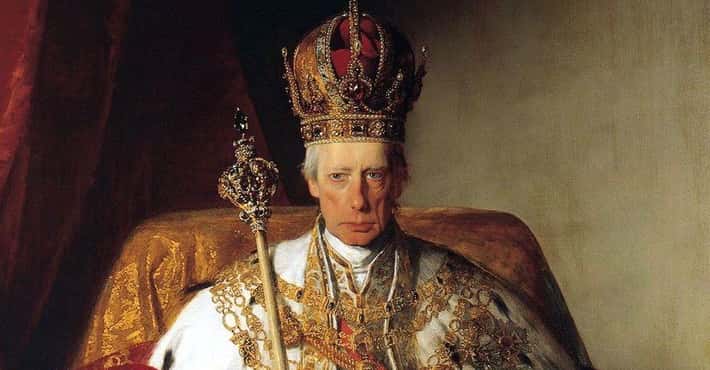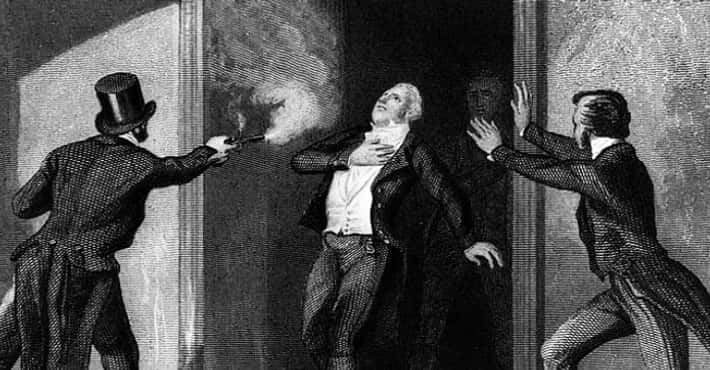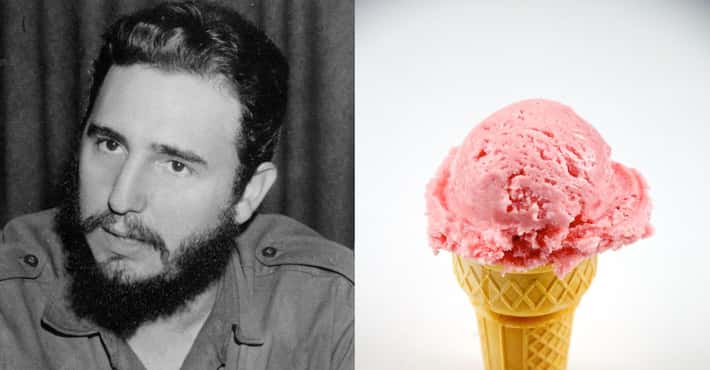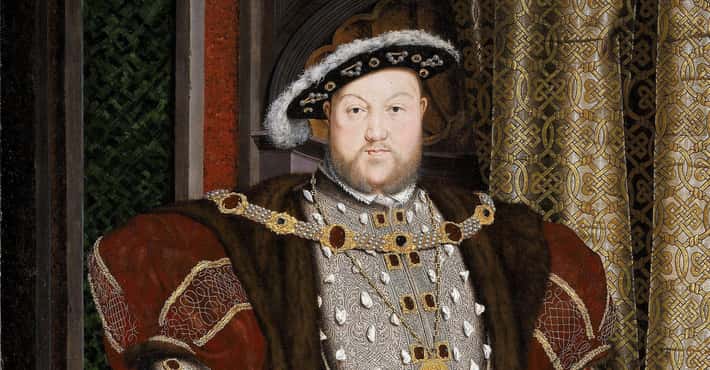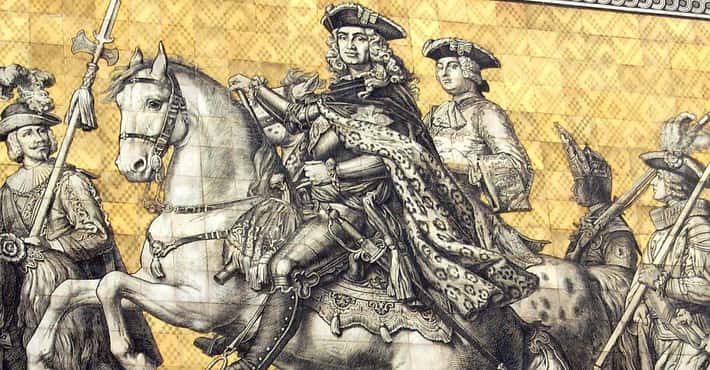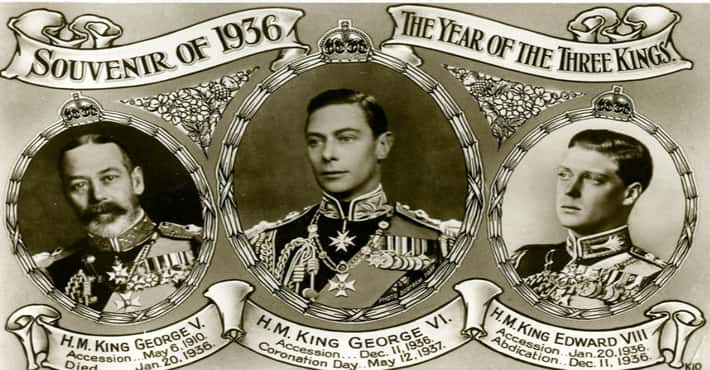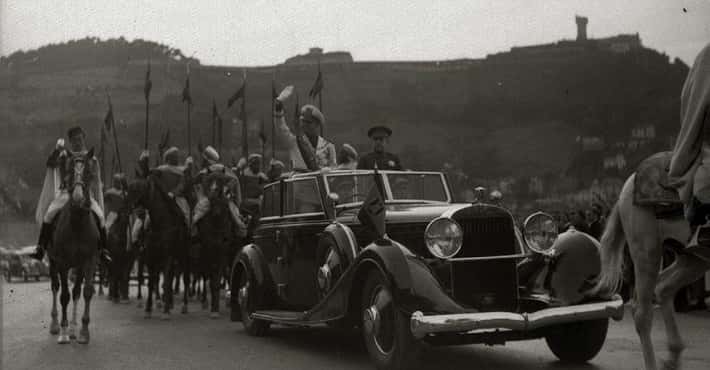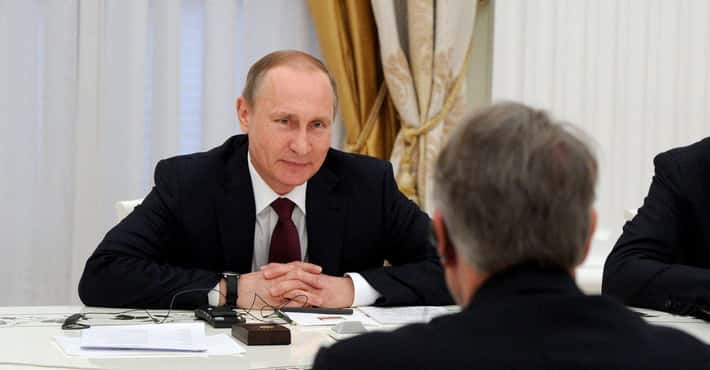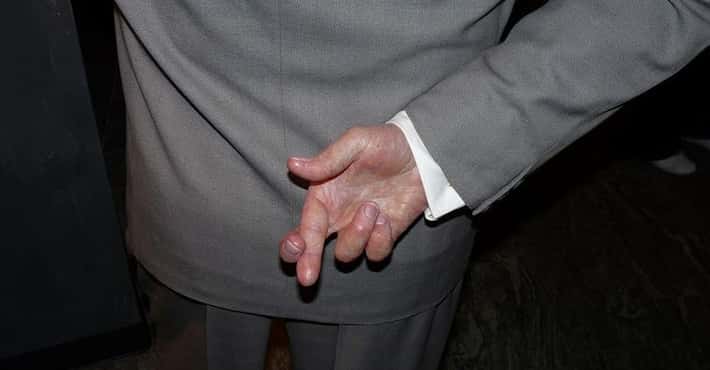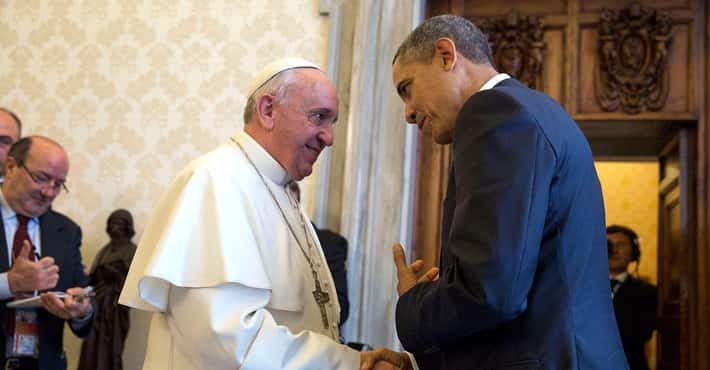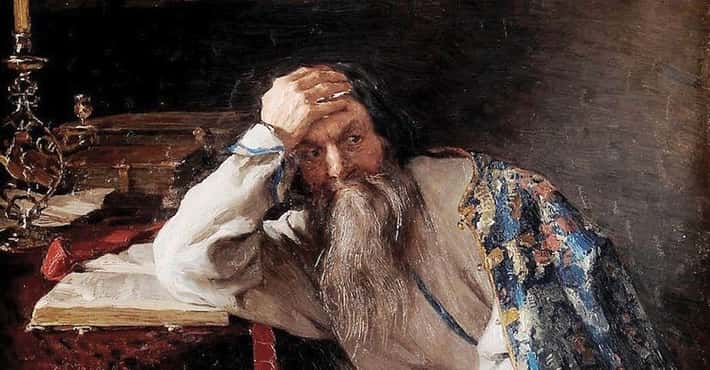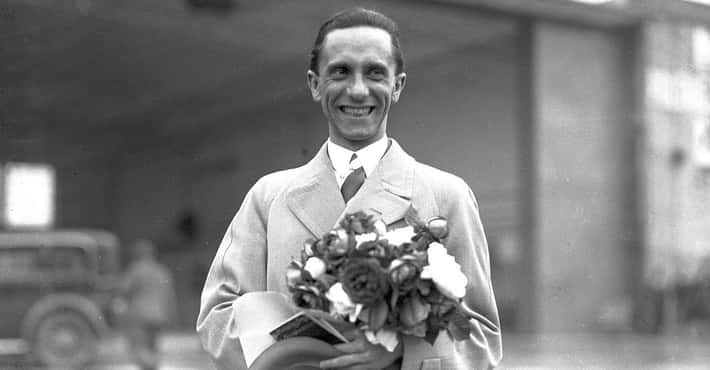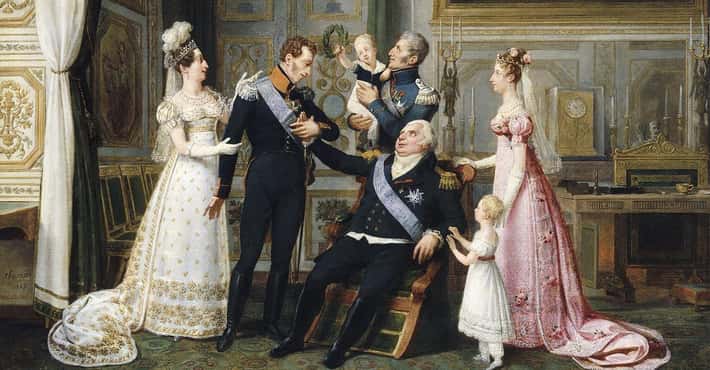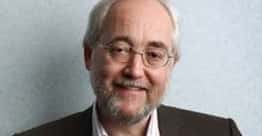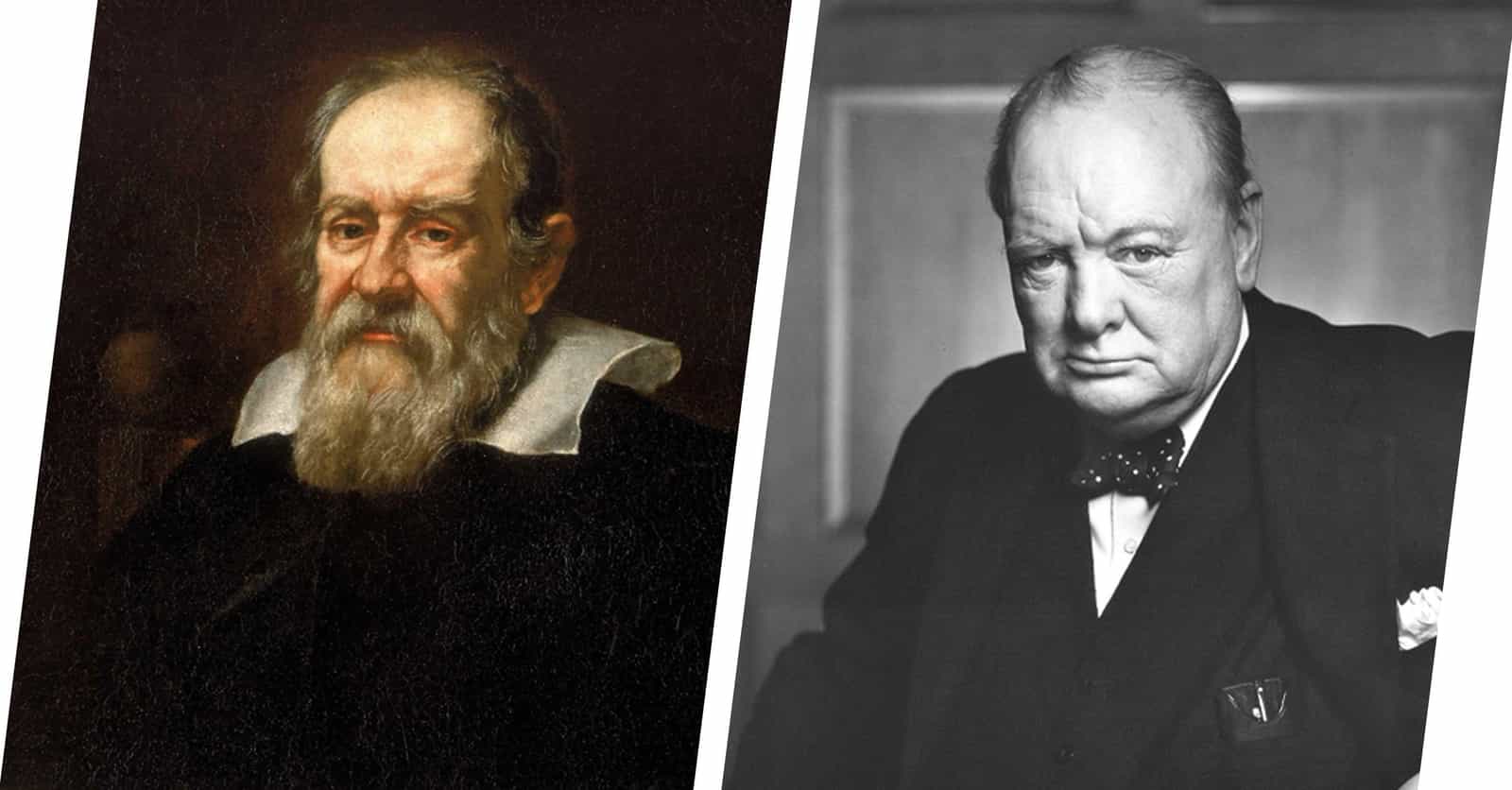
The Most Important Leaders In World History
Ranked By
1.1M votes
109.4K voters
323 reranks
- Jesus (c. 4 BC – c. AD 30 / 33), also referred to as Jesus of Nazareth and Jesus Christ, was a first-century Jewish preacher and religious leader. He is the central figure of Christianity. Most Christians believe he is the incarnation of God the Son and the awaited Messiah (Christ) prophesied in the Old Testament.Virtually all modern scholars of antiquity agree that Jesus existed historically, although the quest for the historical Jesus has produced little agreement on the historical reliability of the Gospels and on how closely the Jesus portrayed in the Bible reflects the historical Jesus. Jesus was a Galilean Jew who was baptized by John the Baptist and began his own ministry. He preached orally and was often referred to as "rabbi". Jesus debated with fellow Jews on how to best follow God, engaged in healings, taught in parables and gathered followers. He was arrested and tried by the Jewish authorities, turned over to the Roman government, and crucified on the order of Pontius Pilate, the Roman prefect. After his death, his followers believed he rose from the dead, and the community they formed eventually became the early Church.Christian doctrines include the beliefs that Jesus was conceived by the Holy Spirit, was born of a virgin named Mary, performed miracles, founded the Christian Church, died by crucifixion as a sacrifice to achieve atonement for sin, rose from the dead, and ascended into Heaven, from where he will return. Most Christians believe Jesus enables people to be reconciled to God. The Nicene Creed asserts that Jesus will judge the living and the dead either before or after their bodily resurrection, an event tied to the Second Coming of Jesus in Christian eschatology. The great majority of Christians worship Jesus as the incarnation of God the Son, the second of three persons of the Trinity. A minority of Christian denominations reject Trinitarianism, wholly or partly, as non-scriptural. The birth of Jesus is celebrated annually on December 25 (or various dates in January by some eastern churches) as Christmas. His crucifixion is honored on Good Friday and his resurrection on Easter. The widely used calendar era "AD", from the Latin anno Domini ("in the year of the Lord"), and the equivalent alternative "CE", are based on the approximate birthdate of Jesus.Jesus is also revered in non-Christian religions. In Islam, Jesus (commonly transliterated as Isa) is considered one of God's important prophets and the Messiah. Muslims believe Jesus was a bringer of scripture and was born of a virgin, but was not the son of God. The Quran states that Jesus never claimed divinity. Most Muslims do not believe that he was crucified, but that he was physically raised into Heaven by God. In contrast, Judaism rejects the belief that Jesus was the awaited Messiah, arguing that he did not fulfill Messianic prophecies, and was neither divine nor resurrected.
- Gaius Julius Caesar (12 July 100 BC – 15 March 44 BC) was a Roman general and statesman who played a critical role in the events that led to the demise of the Roman Republic and the rise of the Roman Empire. In 60 BC, Caesar, Crassus and Pompey formed the First Triumvirate, a political alliance that dominated Roman politics for several years. After assuming control of government, Caesar began a program of social and governmental reforms, including the creation of the Julian calendar. Caesar was an accomplished author and historian as well as a statesman; much of his life is known from his own accounts of his military campaigns. Caesar is considered by many historians to be one of the greatest military commanders in history. He has frequently appeared in literary and artistic works, and his political philosophy, known as Caesarism, inspired politicians into the modern era.
- Galileo Galilei ( GAL-il-AY-oh, also US: -EE-oh, Italian: [ɡaliˈlɛːo ɡaliˈlɛi]; 15 February 1564 – 8 January 1642) was an astronomer, physicist and engineer, sometimes described as a polymath from Pisa. Galileo has been called the "father of observational astronomy", the "father of modern physics", the "father of the scientific method", and the "father of modern science".Galileo studied speed and velocity, gravity and free fall, the principle of relativity, inertia, projectile motion and also worked in applied science and technology, describing the properties of pendulums and "hydrostatic balances", inventing the thermoscope and various military compasses, and using the telescope for scientific observations of celestial objects. His contributions to observational astronomy include the telescopic confirmation of the phases of Venus, the observation of the four largest satellites of Jupiter, the observation of Saturn's rings, and the analysis of sunspots. Galileo's championing of heliocentrism and Copernicanism was controversial during his lifetime, when most subscribed to geocentric models such as the Tychonic system. He met with opposition from astronomers, who doubted heliocentrism because of the absence of an observed stellar parallax. The matter was investigated by the Roman Inquisition in 1615, which concluded that heliocentrism was "foolish and absurd in philosophy, and formally heretical since it explicitly contradicts in many places the sense of Holy Scripture". Galileo later defended his views in Dialogue Concerning the Two Chief World Systems (1632), which appeared to attack Pope Urban VIII and thus alienated him and the Jesuits, who had both supported Galileo up until this point. He was tried by the Inquisition, found "vehemently suspect of heresy", and forced to recant. He spent the rest of his life under house arrest. While under house arrest, he wrote Two New Sciences, in which he summarized work he had done some forty years earlier on the two sciences now called kinematics and strength of materials.
- Socrates (; Ancient Greek: Σωκρᾰ́της, romanized: Sōkrátēs, [sɔːkrátɛːs]; c. 470 – 399 BC) was a classical Greek (Athenian) philosopher credited as one of the founders of Western philosophy, and as being the first moral philosopher of the Western ethical tradition of thought. An enigmatic figure, he made no writings, and is known chiefly through the accounts of classical writers writing after his lifetime, particularly his students Plato and Xenophon. Other sources include the contemporaneous Antisthenes, Aristippus, and Aeschines of Sphettos. Aristophanes, a playwright, is the main contemporary author to have written plays mentioning Socrates during Socrates' lifetime, though a fragment of Ion of Chios' Travel Journal provides important information about Socrates' youth.Plato's dialogues are among the most comprehensive accounts of Socrates to survive from antiquity, from which Socrates has become renowned for his contributions to the fields of ethics and epistemology. It is this Platonic Socrates who lends his name to the concepts of Socratic irony and the Socratic method, or elenchus. However, questions remain regarding the distinction between the real-life Socrates and Plato's portrayal of Socrates in his dialogues. Socrates exerted a strong influence on philosophers in later antiquity and in the modern era. Depictions of Socrates in art, literature and popular culture have made him one of the most widely known figures in the Western philosophical tradition.
- Alexander III of Macedon (Greek: Αλέξανδρος Γʹ ὁ Μακεδών; 20/21 July 356 BC – 10/11 June 323 BC), commonly known as Alexander the Great (Ancient Greek: Ἀλέξανδρος ὁ Μέγας, romanized: Aléxandros ho Mégas), was a king (basileus) of the ancient Greek kingdom of Macedon and a member of the Argead dynasty. He was born in Pella in 356 BC and succeeded his father Philip II to the throne at the age of 20. He spent most of his ruling years on an unprecedented military campaign through Asia and northeast Africa, and by the age of thirty he had created one of the largest empires of the ancient world, stretching from Greece to northwestern India. He was undefeated in battle and is widely considered one of history's most successful military commanders.During his youth, Alexander was tutored by Aristotle until age 16. After Philip's assassination in 336 BC, he succeeded his father to the throne and inherited a strong kingdom and an experienced army. Alexander was awarded the generalship of Greece and used this authority to launch his father's pan-Hellenic project to lead the Greeks in the conquest of Persia. In 334 BC, he invaded the Achaemenid Empire (Persian Empire) and began a series of campaigns that lasted 10 years. Following the conquest of Anatolia, Alexander broke the power of Persia in a series of decisive battles, most notably the battles of Issus and Gaugamela. He subsequently overthrew Persian King Darius III and conquered the Achaemenid Empire in its entirety. At that point, his empire stretched from the Adriatic Sea to the Indus River. Alexander endeavored to reach the "ends of the world and the Great Outer Sea" and invaded India in 326 BC, winning an important victory over the Pauravas at the Battle of the Hydaspes. He eventually turned back at the demand of his homesick troops, dying in Babylon in 323 BC, the city that he planned to establish as his capital, without executing a series of planned campaigns that would have begun with an invasion of Arabia. In the years following his death, a series of civil wars tore his empire apart, resulting in the establishment of several states ruled by the Diadochi: Alexander's surviving generals and heirs. Alexander's legacy includes the cultural diffusion and syncretism which his conquests engendered, such as Greco-Buddhism. He founded some twenty cities that bore his name, most notably Alexandria in Egypt. Alexander's settlement of Greek colonists and the resulting spread of Greek culture in the east resulted in a new Hellenistic civilization, aspects of which were still evident in the traditions of the Byzantine Empire in the mid-15th century AD and the presence of Greek speakers in central and far eastern Anatolia until the 1920s. Alexander became legendary as a classical hero in the mold of Achilles, and he features prominently in the history and mythic traditions of both Greek and non-Greek cultures. He became the measure against which military leaders compared themselves, and military academies throughout the world still teach his tactics. He is often ranked among the most influential people in history.
- Napoleon Bonaparte (, French: [napɔleɔ̃ bɔnɑpaʁt]; Italian: Napoleone di Buonaparte, pronounced [napoleˈone di bwɔnaˈparte]; 15 August 1769 – 5 May 1821) was a French statesman and military leader of Italian descent who rose to prominence during the French Revolution and led several successful campaigns during the French Revolutionary Wars. He was Emperor of the French as Napoleon I from 1804 until 1814 and again briefly in 1815 during the Hundred Days. Napoleon dominated European and global affairs for more than a decade while leading France against a series of coalitions in the Napoleonic Wars. He won most of these wars and the vast majority of his battles, building a large empire that ruled over much of continental Europe before its final collapse in 1815. He is considered one of the greatest commanders in history, and his wars and campaigns are studied at military schools worldwide. Napoleon's political and cultural legacy has endured as one of the most celebrated and controversial leaders in human history.Napoleon was born in Corsica to a relatively modest family originating from minor Italian nobility. He was serving as an artillery officer in the French army when the French Revolution erupted in 1789. He rapidly rose through the ranks of the military, seizing the new opportunities presented by the Revolution and becoming a general at age 24. The French Directory eventually gave him command of the Army of Italy after he suppressed the 13 Vendémiaire revolt against the government from royalist insurgents. At age 26, he began his first military campaign against the Austrians and the Italian monarchs aligned with the Habsburgs—winning virtually every battle, conquering the Italian Peninsula in a year while establishing "sister republics" with local support, and becoming a war hero in France. In 1798, he led a military expedition to Egypt that served as a springboard to political power. He orchestrated a coup in November 1799 and became First Consul of the Republic. He also formed a Franco-Persian alliance and one of the Franco-Indian alliances with Mysore ruler Tipu Sultan and provided them French-trained army during the Napoleonic and Anglo-Mysore Wars, with the continuous aim of having an eventual open way to attack the British in India.Napoleon's ambition and public approval inspired him to go further, and he became the first Emperor of the French in 1804. Intractable differences with the British meant that the French were facing a Third Coalition by 1805. Napoleon shattered this coalition with decisive victories in the Ulm Campaign and a historic triumph over the Russian Empire and Austrian Empire at the Battle of Austerlitz which led to the dissolution of the Holy Roman Empire. In 1806, the Fourth Coalition took up arms against him because Prussia became worried about growing French influence on the continent. Napoleon quickly defeated Prussia at the battles of Jena and Auerstedt, then marched his Grande Armée deep into Eastern Europe and annihilated the Russians in June 1807 at the Battle of Friedland. France then forced the defeated nations of the Fourth Coalition to sign the Treaties of Tilsit in July 1807, bringing an uneasy peace to the continent. Tilsit signified the high-water mark of the French Empire. In 1809, the Austrians and the British challenged the French again during the War of the Fifth Coalition, but Napoleon solidified his grip over Europe after triumphing at the Battle of Wagram in July. Napoleon then invaded the Iberian Peninsula, hoping to extend the Continental System and choke off British trade with the European mainland, and declared his brother Joseph Bonaparte the King of Spain in 1808. The Spanish and the Portuguese revolted with British support. The Peninsular War lasted six years, featured extensive guerrilla warfare, and ended in victory for the Allies against Napoleon. The Continental System caused recurring diplomatic conflicts between France and its client states, especially Russia. The Russians were unwilling to bear the economic consequences of reduced trade and routinely violated the Continental System, enticing Napoleon into another war. The French launched a major invasion of Russia in the summer of 1812. The campaign destroyed Russian cities, but did not yield the decisive victory Napoleon wanted. It resulted in the collapse of the Grande Armée and inspired a renewed push against Napoleon by his enemies. In 1813, Prussia and Austria joined Russian forces in the War of the Sixth Coalition against France. A lengthy military campaign culminated in a large Allied army defeating Napoleon at the Battle of Leipzig in October 1813, but his tactical victory at the minor Battle of Hanau allowed retreat onto French soil. The Allies then invaded France and captured Paris in the spring of 1814, forcing Napoleon to abdicate in April. He was exiled to the island of Elba off the coast of Tuscany, and the Bourbon dynasty was restored to power. Napoleon escaped from Elba in February 1815 and took control of France once again. The Allies responded by forming a Seventh Coalition which defeated him at the Battle of Waterloo in June. The British exiled him to the remote island of Saint Helena in the South Atlantic, where he died six years later at the age of 51. Napoleon's influence on the modern world brought liberal reforms to the numerous territories that he conquered and controlled, such as the Low Countries, Switzerland, and large parts of modern Italy and Germany. He implemented fundamental liberal policies in France and throughout Western Europe. His Napoleonic Code has influenced the legal systems of more than 70 nations around the world. British historian Andrew Roberts states: "The ideas that underpin our modern world—meritocracy, equality before the law, property rights, religious toleration, modern secular education, sound finances, and so on—were championed, consolidated, codified and geographically extended by Napoleon. To them he added a rational and efficient local administration, an end to rural banditry, the encouragement of science and the arts, the abolition of feudalism and the greatest codification of laws since the fall of the Roman Empire".
- Winston Churchill, born in Woodstock, England in 1874, was a dynamic statesman, orator, and author whose political career spanned over half a century. The son of Lord Randolph Churchill and his American wife Jennie Jerome, he was a direct descendent of the Dukes of Marlborough. His early years were characterized by an independent spirit and a thirst for learning, despite struggling academically at prestigious institutions such as Harrow School and Sandhurst Military Academy. In his early twenties, Churchill began his military career, serving in British India, Sudan, and during the Second Boer War. These experiences not only shaped his viewpoints on warfare but also sparked his interest in journalism and writing. He wrote several books about his military campaigns, which gained him recognition in Britain. Transitioning from a military career to politics, Churchill became a Member of Parliament in 1900, marking the beginning of his political journey. He held various high-profile positions within the British Government, including Home Secretary and First Lord of the Admiralty, before becoming the Prime Minister in 1940. As Prime Minister during World War II, Churchill is best remembered for his resolute leadership and stirring speeches that inspired the British people during the darkest days of the conflict. His famous "We shall fight on the beaches" speech remains one of the most powerful orations in history. After the war, Churchill's focus shifted towards warning the world about the expansionist policies of the Soviet Union, coining the term "Iron Curtain". In 1953, he was awarded the Nobel Prize in Literature for his numerous published works in the fields of history, biography, and particularly for his six-volume work, "The Second World War". Winston Churchill passed away in 1965, leaving behind a legacy that continues to influence global politics and leadership.
- Augustus (Latin: Imperator Caesar Divi filius Augustus; 23 September 63 BC – 19 August AD 14) was a Roman statesman and military leader who was the first emperor of the Roman Empire, reigning from 27 BC until his death in AD 14. His status as the founder of the Roman Principate has consolidated an enduring legacy as one of the most effective and controversial leaders in human history. The reign of Augustus initiated an era of relative peace known as the Pax Romana. The Roman world was largely free from large-scale conflict for more than two centuries, despite continuous wars of imperial expansion on the Empire's frontiers and the year-long civil war known as the "Year of the Four Emperors" over the imperial succession. Augustus was born Gaius Octavius Thurinus into an old and wealthy equestrian branch of the plebeian gens Octavia. His maternal great-uncle Julius Caesar was assassinated in 44 BC, and Octavius was named in Caesar's will as his adopted son and heir. Along with Mark Antony and Marcus Lepidus, he formed the Second Triumvirate to defeat the assassins of Caesar. Following their victory at the Battle of Philippi, the Triumvirate divided the Roman Republic among themselves and ruled as military dictators. The Triumvirate was eventually torn apart by the competing ambitions of its members. Lepidus was driven into exile and stripped of his position, and Antony committed suicide following his defeat at the Battle of Actium by Octavian in 31 BC. After the demise of the Second Triumvirate, Augustus restored the outward façade of the free Republic, with governmental power vested in the Roman Senate, the executive magistrates, and the legislative assemblies. In reality, however, he retained his autocratic power over the Republic as a military dictator. By law, Augustus held a collection of powers granted to him for life by the Senate, including supreme military command, and those of tribune and censor. It took several years for Augustus to develop the framework within which a formally republican state could be led under his sole rule. He rejected monarchical titles, and instead called himself Princeps Civitatis ("First Citizen of the State"). The resulting constitutional framework became known as the Principate, the first phase of the Roman Empire. Augustus dramatically enlarged the Empire, annexing Egypt, Dalmatia, Pannonia, Noricum, and Raetia, expanding possessions in Africa, and completing the conquest of Hispania, but suffered a major setback in Germania. Beyond the frontiers, he secured the Empire with a buffer region of client states and made peace with the Parthian Empire through diplomacy. He reformed the Roman system of taxation, developed networks of roads with an official courier system, established a standing army, established the Praetorian Guard, created official police and fire-fighting services for Rome, and rebuilt much of the city during his reign. Augustus died in AD 14 at the age of 75, probably from natural causes. However, there were unconfirmed rumors that his wife Livia poisoned him. He was succeeded as emperor by his adopted son (also stepson and former son-in-law) Tiberius.
- Aristotle (; Greek: Ἀριστοτέλης Aristotélēs, pronounced [aristotélɛːs]; 384–322 BC) was a Greek philosopher during the Classical period in Ancient Greece, the founder of the Lyceum and the Peripatetic school of philosophy and Aristotelian tradition. Along with his teacher Plato, he has been called the "Father of Western Philosophy". His writings cover many subjects – including physics, biology, zoology, metaphysics, logic, ethics, aesthetics, poetry, theatre, music, rhetoric, psychology, linguistics, economics, politics and government. Aristotle provided a complex synthesis of the various philosophies existing prior to him, and it was above all from his teachings that the West inherited its intellectual lexicon, as well as problems and methods of inquiry. As a result, his philosophy has exerted a unique influence on almost every form of knowledge in the West and it continues to be a subject of contemporary philosophical discussion. Little is known about his life. Aristotle was born in the city of Stagira in Northern Greece. His father, Nicomachus, died when Aristotle was a child, and he was brought up by a guardian. At seventeen or eighteen years of age, he joined Plato's Academy in Athens and remained there until the age of thirty-seven (c. 347 BC). Shortly after Plato died, Aristotle left Athens and, at the request of Philip II of Macedon, tutored Alexander the Great beginning in 343 BC. He established a library in the Lyceum which helped him to produce many of his hundreds of books on papyrus scrolls. Though Aristotle wrote many elegant treatises and dialogues for publication, only around a third of his original output has survived, none of it intended for publication.Aristotle's views on physical science profoundly shaped medieval scholarship. Their influence extended from Late Antiquity and the Early Middle Ages into the Renaissance, and were not replaced systematically until the Enlightenment and theories such as classical mechanics. Some of Aristotle's zoological observations found in his biology, such as on the hectocotyl (reproductive) arm of the octopus, were disbelieved until the 19th century. His works contain the earliest known formal study of logic, studied by medieval scholars such as Peter Abelard and John Buridan. Aristotle's influence on logic also continued well into the 19th century. He influenced Islamic thought during the Middle Ages, as well as Christian theology, especially the Neoplatonism of the Early Church and the scholastic tradition of the Catholic Church. Aristotle was revered among medieval Muslim scholars as "The First Teacher" and among medieval Christians like Thomas Aquinas as simply "The Philosopher". His ethics, though always influential, gained renewed interest with the modern advent of virtue ethics, such as in the thinking of Alasdair MacIntyre and Philippa Foot.
- Abraham Lincoln (February 12, 1809 – April 15, 1865) was an American statesman and lawyer who served as the 16th president of the United States from 1861 until his assassination in April 1865. Lincoln led the nation through the American Civil War, its bloodiest war and its greatest moral, constitutional, and political crisis. He preserved the Union, abolished slavery, strengthened the federal government, and modernized the U.S. economy. Born in Kentucky, Lincoln grew up on the frontier in a poor family. Self-educated, he became a lawyer, Whig Party leader, Illinois state legislator and Congressman. In 1849, he left government to resume his law practice, but angered by the success of Democrats in opening the prairie lands to slavery, reentered politics in 1854. He became a leader in the new Republican Party and gained national attention in 1858 for debating national Democratic leader Stephen A. Douglas in the 1858 Illinois Senate campaign. He then ran for President in 1860, sweeping the North and winning. Southern pro-slavery elements took his win as proof that the North was rejecting the constitutional rights of Southern states to practice slavery. They began the process of seceding from the union. To secure its independence, the new Confederate States of America fired on Fort Sumter, one of the few U.S. forts in the South. Lincoln called up volunteers and militia to suppress the rebellion and restore the Union. As the leader of the moderate faction of the Republican Party, Lincoln confronted Radical Republicans, who demanded harsher treatment of the South; War Democrats, who rallied a large faction of former opponents into his camp; anti-war Democrats (called Copperheads), who despised him; and irreconcilable secessionists, who plotted his assassination. Lincoln fought the factions by pitting them against each other, by carefully distributing political patronage, and by appealing to the American people. His Gettysburg Address became an iconic call for nationalism, republicanism, equal rights, liberty, and democracy. He suspended habeas corpus, and he averted British intervention by defusing the Trent Affair. Lincoln closely supervised the war effort, including the selection of generals and the naval blockade that shut down the South's trade. As the war progressed, he maneuvered to end slavery, issuing the Emancipation Proclamation of 1863; ordering the Army to protect escaped slaves, encouraging border states to outlaw slavery, and pushing through Congress the Thirteenth Amendment to the United States Constitution, which outlawed slavery across the country. Lincoln managed his own re-election campaign. He sought to reconcile his damaged nation by avoiding retribution against the secessionists. A few days after the Battle of Appomattox Court House, he was shot by John Wilkes Booth, an actor and Confederate sympathizer, on April 14, 1865, and died the following day. Abraham Lincoln is remembered as the United States' martyr hero. He is consistently ranked both by scholars and the public as among the greatest U.S. presidents.
- Mohandas Karamchand Gandhi (; 2 October 1869 – 30 January 1948) was an Indian lawyer, anti-colonial nationalist, and political ethicist, who employed nonviolent resistance to lead the successful campaign for India's independence from British Rule, and in turn inspire movements for civil rights and freedom across the world. The honorific Mahātmā (Sanskrit: "high-souled", "venerable"), first applied to him in 1914 in South Africa, is now used throughout the world. Born and raised in a Hindu family in coastal Gujarat, western India, and trained in law at the Inner Temple, London, Gandhi first employed nonviolent civil disobedience as an expatriate lawyer in South Africa, in the resident Indian community's struggle for civil rights. After his return to India in 1915, he set about organising peasants, farmers, and urban labourers to protest against excessive land-tax and discrimination. Assuming leadership of the Indian National Congress in 1921, Gandhi led nationwide campaigns for various social causes and for achieving Swaraj or self-rule.Gandhi led Indians in challenging the British-imposed salt tax with the 400 km (250 mi) Dandi Salt March in 1930, and later in calling for the British to Quit India in 1942. He was imprisoned for many years, upon many occasions, in both South Africa and India. He lived modestly in a self-sufficient residential community and wore the traditional Indian dhoti and shawl, woven with yarn hand-spun on a charkha. He ate simple vegetarian food, and also undertook long fasts as a means of both self-purification and political protest. Gandhi's vision of an independent India based on religious pluralism was challenged in the early 1940s by a new Muslim nationalism which was demanding a separate Muslim homeland carved out of India. In August 1947, Britain granted independence, but the British Indian Empire was partitioned into two dominions, a Hindu-majority India and Muslim-majority Pakistan. As many displaced Hindus, Muslims, and Sikhs made their way to their new lands, religious violence broke out, especially in the Punjab and Bengal. Eschewing the official celebration of independence in Delhi, Gandhi visited the affected areas, attempting to provide solace. In the months following, he undertook several fasts unto death to stop religious violence. The last of these, undertaken on 12 January 1948 when he was 78, also had the indirect goal of pressuring India to pay out some cash assets owed to Pakistan. Some Indians thought Gandhi was too accommodating. Among them was Nathuram Godse, a Hindu nationalist, who assassinated Gandhi on 30 January 1948 by firing three bullets into his chest.Gandhi's birthday, 2 October, is commemorated in India as Gandhi Jayanti, a national holiday, and worldwide as the International Day of Nonviolence. Gandhi is commonly, though not formally considered the Father of the Nation in India. Gandhi is also called Bapu (Gujarati: endearment for father, papa).
- Martin Luther King, Jr., an iconic figure in the American civil rights movement, was born on January 15, 1929, in Atlanta, Georgia. His father was a Baptist minister and his mother was a schoolteacher. Both instilled in him a strong sense of self-worth and faith. King's childhood was steeped in the African-American Baptist church community, shaping his world views and sowing the seeds of his future activism. Devoted to his studies, King graduated from Morehouse College in 1948 with a Bachelor of Arts degree in Sociology, later earning a Bachelor of Divinity from Crozer Theological Seminary in 1951 and a Ph.D. in Systematic Theology from Boston University in 1955. King's leadership in the Civil Rights Movement commenced with his involvement in the Montgomery bus boycott in 1955, sparked by Rosa Parks's refusal to give up her seat to a white passenger. As president of the Montgomery Improvement Association, King utilized the principles of nonviolent protest, inspired by Mahatma Gandhi's philosophy. His stirring speeches and peaceful protests brought national attention to the movement. During this period, King penned his famous "Letter from Birmingham Jail," a poignant defense of nonviolent resistance to racism. Martin Luther King, Jr.'s most famous moment came during the March on Washington for Jobs and Freedom in August 1963. Here he delivered his historic "I Have a Dream" speech, calling for an end to racism and envisioning a future where people would be judged by their character, not their skin color. King's relentless pursuit of equality earned him the Nobel Peace Prize in 1964. On April 4, 1968, King's life was tragically cut short when he was assassinated in Memphis, Tennessee. His legacy continues to inspire and influence social justice movements globally.
- Nelson Mandela, born in 1918 in the small village of Mvezo in South Africa, emerged as a symbol of resistance and resilience against racial discrimination. Raised in a world characterized by systemic racial segregation, known as apartheid, Mandela's early experiences significantly shaped his perspective on social justice and equality. A student of law at the University of Witwatersrand, he became actively involved in political activism in his twenties, joining the African National Congress (ANC) in 1942 and co-founding its Youth League. Mandela's commitment to dismantle apartheid was met with severe opposition from the government. His involvement in the Defiance Campaign and the Congress of the People led to his arrest in 1956, though he was later acquitted after a long trial. However, his fight against apartheid did not wane. In 1961, he led an armed resistance, Umkhonto we Sizwe, resulting in his imprisonment in 1962 for 27 years. Despite physical confinement, Mandela's spirit remained unbroken, his message of freedom resonating beyond the prison walls. Released in 1990 amidst mounting international pressure, Mandela's freedom marked a new chapter in South Africa's quest for democracy. He was instrumental in negotiations that led to the end of apartheid and paved the way for multiracial elections. In 1994, his lifelong struggle bore fruit when he was elected as South Africa's first black President. Serving one term until 1999, Mandela's presidency embodied reconciliation and nation-building. After retirement, he remained a global advocate for peace and social justice until his death in 2013. Nelson Mandela's life is a testament to the power of perseverance and the relentless pursuit of equality.
- Plato (; PLAY-toe Greek: Πλάτων Plátōn, pronounced [plá.tɔːn] in Classical Attic; 428/427 or 424/423 – 348/347 BC) was an Athenian philosopher during the Classical period in Ancient Greece, founder of the Platonist school of thought, and the Academy, the first institution of higher learning in the Western world. He is widely considered the pivotal figure in the history of Ancient Greek and Western philosophy, along with his teacher, Socrates, and his most famous student, Aristotle. Plato has also often been cited as one of the founders of Western religion and spirituality. The so-called Neoplatonism of philosophers like Plotinus and Porphyry influenced Saint Augustine and thus Christianity. Alfred North Whitehead once noted: "the safest general characterization of the European philosophical tradition is that it consists of a series of footnotes to Plato."Plato was the innovator of the written dialogue and dialectic forms in philosophy. Plato also appears to have been the founder of Western political philosophy. His most famous contribution bears his name, Platonism (also ambiguously called either Platonic realism or Platonic idealism), the doctrine of the Forms known by pure reason to provide an idealist solution to the problem of universals. He is also the namesake of Platonic love and the Platonic solids. His own most decisive philosophical influences are usually thought to have been along with Socrates, the pre-Socratics Pythagoras, Heraclitus and Parmenides, although few of his predecessors' works remain extant and much of what we know about these figures today derives from Plato himself. Unlike the work of nearly all of his contemporaries, Plato's entire body of work is believed to have survived intact for over 2,400 years. Although their popularity has fluctuated over the years, the works of Plato have never been without readers since the time they were written.
Greatest Viking of them all.
Ragnar Lodbrok or Lothbrok (Old Norse: Ragnarr Loðbrók, "Ragnar shaggy breeches", contemporary Norse: Ragnar Loðbrók) was a historically dubious Norse Viking hero and legendary king of Denmark and Sweden, known from Viking Age Old Norse poetry and sagas. According to that traditional literature, Ragnar distinguished himself by many raids against Francia and Anglo-Saxon England during the 9th century. There is no evidence that he existed under this name and outside of the mythology associated with him.- Marcus Aurelius (26 April 121 – 17 March 180) was Roman emperor from 161 to 180 and a Stoic philosopher. He was the last of the rulers traditionally known as the Five Good Emperors, and the last emperor of the Pax Romana, an age of relative peace and stability for the Roman Empire. He served as Roman consul in 140, 145, and 161. The son of the praetor Marcus Annius Verus (III) and the wealthy heiress Domitia Lucilla, Marcus was raised by his grandfather, Marcus Annius Verus (II), after his father died. His uncle, Antoninus Pius, adopted him shortly before becoming emperor in 138. Now heir to the throne, Marcus studied Greek and Latin under tutors such as Herodes Atticus and Marcus Cornelius Fronto. He kept in close correspondence with Fronto for many years afterwards. Marcus married Antoninus' daughter Faustina in 145. Antoninus died following an illness in 161. The reign of Marcus Aurelius was marked by military conflict. In the East, the Roman Empire fought successfully with a revitalized Parthian Empire and the rebel Kingdom of Armenia. Marcus defeated the Marcomanni, Quadi, and Sarmatian Iazyges in the Marcomannic Wars; however, these and other Germanic peoples began to represent a troubling reality for the Empire. He modified the silver purity of the Roman currency, the denarius. The persecution of Christians in the Roman Empire is believed to have increased during his reign. The Antonine Plague broke out in 165 or 166 and devastated the population of the Roman Empire, causing the deaths of five million people. Marcus never adopted an heir unlike some of his predecessors; his children included Lucilla (who married Lucius Verus, co-emperor from 161 to 169) and Commodus, whose succession after Marcus has become a subject of debate among both contemporary and modern historians. The Column and Equestrian Statue of Marcus Aurelius still stand in Rome, where they were erected in celebration of his military victories. Meditations, the writings of 'the philosopher' – as contemporary biographers called Marcus, are a significant source of the modern understanding of ancient Stoic philosophy. They have been praised by fellow writers, philosophers, monarchs, and politicians centuries after his death.
- Ninth century English nobleman Alfred (David Hemmings) puts his plans to become a priest on hold, because his country has been invaded by Vikings. An innovative tactician, he earns the nickname "Alfred the Great" for his show of bravery on the battlefield -- his renown also wins him a marriage to Princess Aelhswith (Prunella Ransome). When the Vikings mount a second invasion, however, Alfred must once again make a decision between his religious yearnings and his loyalty to his people.
- Genghis Khan (born Temüjin, c. 1162 – August 18, 1227) was the founder and first Great Khan of the Mongol Empire, which became the largest contiguous empire in history after his death. He came to power by uniting many of the nomadic tribes of Northeast Asia. After founding the Empire and being proclaimed Genghis Khan, he launched the Mongol invasions that conquered most of Eurasia. Campaigns initiated in his lifetime include those against the Qara Khitai, Caucasus, and Khwarazmian, Western Xia and Jin dynasties. These campaigns were often accompanied by large-scale massacres of the civilian populations – especially in the Khwarazmian and Western Xia controlled lands. By the end of his life, the Mongol Empire occupied a substantial portion of Central Asia and China. Before Genghis Khan died he assigned Ögedei Khan as his successor. Later his grandsons split his empire into khanates. Genghis Khan died in 1227 after defeating the Western Xia. By his request, his body was buried in an unmarked grave somewhere in Mongolia. His descendants extended the Mongol Empire across most of Eurasia by conquering or creating vassal states in all of modern-day China, Korea, the Caucasus, Central Asia, and substantial portions of Eastern Europe and Southwest Asia. Many of these invasions repeated the earlier large-scale slaughters of local populations. As a result, Genghis Khan and his empire have a fearsome reputation in local histories.Beyond his military accomplishments, Genghis Khan also advanced the Mongol Empire in other ways. He decreed the adoption of the Uyghur script as the Mongol Empire's writing system. He also practised meritocracy and encouraged religious tolerance in the Mongol Empire, and unified the nomadic tribes of Northeast Asia. Present-day Mongolians regard him as the founding father of Mongolia.Genghis Khan was known for the brutality of his campaigns, and is considered by many to have been a genocidal ruler. However, he is also credited with bringing the Silk Road under one cohesive political environment. This brought relatively easy communication and trade between Northeast Asia, Muslim Southwest Asia, and Christian Europe, expanding the cultural horizons of all three areas.
- Muhammad (Arabic: مُحمّد, pronounced [muħammad]; c. 570 CE – 8 June 632 CE) was an Arab religious, social and political leader and the founder of Islam. According to Islamic doctrine, he was a prophet, sent to present and confirm the monotheistic teachings preached previously by Adam, Abraham, Moses, Jesus, and other prophets. He is viewed as the final prophet of God in all the main branches of Islam, though some modern denominations diverge from this belief. Muhammad united Arabia into a single Muslim polity, with the Quran as well as his teachings and practices forming the basis of Islamic religious belief. He is referred to by many appellations, including Messenger of Allah, The Prophet Muhammad, Allah's Apostle, Last Prophet of Islam and others; there are also many variant spellings of Muhammad, such as Mohamet, Mahamad, Muhamad and many others. Born approximately 570 CE (Year of the Elephant) in the Arabian city of Mecca, Muhammad was orphaned at the age of six. He was raised under the care of his paternal grandfather Abd al-Muttalib, and upon his death, by his uncle Abu Talib. In later years he would periodically seclude himself in a mountain cave named Hira for several nights of prayer. When he was 40, Muhammad reported being visited by Gabriel in the cave, and receiving his first revelation from God. Three years later, in 610, Muhammad started preaching these revelations publicly, proclaiming that "God is One", that complete "submission" (islām) to God is the right way of life (dīn), and that he was a prophet and messenger of God, similar to the other prophets in Islam.The followers of Muhammad were initially few in number, and experienced hostility from Meccan polytheists. He sent some of his followers to Abyssinia in 615 to shield them from prosecution, before he and his followers migrated from Mecca to Medina (then known as Yathrib) in 622. This event, the Hijra, marks the beginning of the Islamic calendar, also known as the Hijri Calendar. In Medina, Muhammad united the tribes under the Constitution of Medina. In December 629, after eight years of intermittent fighting with Meccan tribes, Muhammad gathered an army of 10,000 Muslim converts and marched on the city of Mecca. The conquest went largely uncontested and Muhammad seized the city with little bloodshed. In 632, a few months after returning from the Farewell Pilgrimage, he fell ill and died. By the time of his death, most of the Arabian Peninsula had converted to Islam.The revelations (each known as Ayah, lit. "Sign [of God]") which Muhammad reported receiving until his death form the verses of the Quran, regarded by Muslims as the verbatim "Word of God" and around which the religion is based. Besides the Quran, Muhammad's teachings and practices (sunnah), found in the Hadith and sira (biography) literature, are also upheld and used as sources of Islamic law (see Sharia).
- Frederick II (26 December 1194 – 13 December 1250; Latin: Fridericus, Federicus, Italian: Federico, German: Frîderich, Friedrich) was King of Sicily from 1198, King of Germany from 1212, King of Italy and Holy Roman Emperor from 1220 and King of Jerusalem from 1225. He was the son of emperor Henry VI of the Hohenstaufen dynasty and of Constance, heiress to the Norman kings of Sicily. His political and cultural ambitions were enormous as he ruled a vast area beginning with Sicily and stretching through Italy all the way north to Germany. As the Crusades progressed, he acquired control of Jerusalem and styled himself its king. However, the Papacy became his enemy, and it eventually prevailed. Viewing himself as a direct successor to the Roman emperors of antiquity, he was Emperor of the Romans from his papal coronation in 1220 until his death; he was also a claimant to the title of King of the Romans from 1212 and unopposed holder of that monarchy from 1215. As such, he was King of Germany, of Italy, and of Burgundy. At the age of three, he was crowned King of Sicily as a co-ruler with his mother, Constance of Hauteville, the daughter of Roger II of Sicily. His other royal title was King of Jerusalem by virtue of marriage and his connection with the Sixth Crusade. Frequently at war with the papacy, which was hemmed in between Frederick's lands in northern Italy and his Kingdom of Sicily (the Regno) to the south, he was excommunicated four times and often vilified in pro-papal chronicles of the time and after. Pope Gregory IX went so far as to call him an Antichrist. Speaking six languages (Latin, Sicilian, Middle High German, Langues d'oïl, Greek and Arabic), Frederick was an avid patron of science and the arts. He played a major role in promoting literature through the Sicilian School of poetry. His Sicilian royal court in Palermo, beginning around 1220, saw the first use of a literary form of an Italo-Romance language, Sicilian. The poetry that emanated from the school had a significant influence on literature and on what was to become the modern Italian language. He was also the first king to formally outlaw trial by ordeal, which had come to be viewed as superstitious.After his death his line did not survive, and the House of Hohenstaufen came to an end. Furthermore, the Holy Roman Empire entered a long period of decline from which it did not completely recover until the reign of Charles V, 250 years later. Historians have searched for superlatives to describe him, as in the case of Donald Detwiler, who wrote: A man of extraordinary culture, energy, and ability – called by a contemporary chronicler stupor mundi (the wonder of the world), by Nietzsche the first European, and by many historians the first modern ruler – Frederick established in Sicily and southern Italy something very much like a modern, centrally governed kingdom with an efficient bureaucracy.
- Albert Einstein ( EYEN-styne; German: [ˈalbɛɐ̯t ˈʔaɪnʃtaɪn] (listen); 14 March 1879 – 18 April 1955) was a German-born theoretical physicist who developed the theory of relativity, one of the two pillars of modern physics (alongside quantum mechanics). His work is also known for its influence on the philosophy of science. He is best known to the general public for his mass–energy equivalence formula E = m c 2 {\displaystyle E=mc^{2}} , which has been dubbed "the world's most famous equation". He received the 1921 Nobel Prize in Physics "for his services to theoretical physics, and especially for his discovery of the law of the photoelectric effect", a pivotal step in the development of quantum theory. Near the beginning of his career, Einstein thought that Newtonian mechanics was no longer enough to reconcile the laws of classical mechanics with the laws of the electromagnetic field. This led him to develop his special theory of relativity during his time at the Swiss Patent Office in Bern (1902–1909). However, he realized that the principle of relativity could also be extended to gravitational fields, and he published a paper on general relativity in 1916 with his theory of gravitation. He continued to deal with problems of statistical mechanics and quantum theory, which led to his explanations of particle theory and the motion of molecules. He also investigated the thermal properties of light which laid the foundation of the photon theory of light. In 1917, he applied the general theory of relativity to model the structure of the universe.Except for one year in Prague, Einstein lived in Switzerland between 1895 and 1914, during which time he renounced his German citizenship in 1896, then received his academic diploma from the Swiss federal polytechnic school (later the Eidgenössische Technische Hochschule, ETH) in Zürich in 1900. After being stateless for more than five years, he acquired Swiss citizenship in 1901, which he kept for the rest of his life. In 1905, he was awarded a PhD by the University of Zurich. The same year, he published four groundbreaking papers during his renowned annus mirabilis (miracle year) which brought him to the notice of the academic world at the age of 26. Einstein taught theoretical physics at Zurich between 1912 and 1914, before he left for Berlin, where he was elected to the Prussian Academy of Sciences. In 1933, while Einstein was visiting the United States, Adolf Hitler came to power. Because of his Jewish background, Einstein did not return to Germany. He settled in the United States and became an American citizen in 1940. On the eve of World War II, he endorsed a letter to President Franklin D. Roosevelt alerting him to the potential development of "extremely powerful bombs of a new type" and recommending that the US begin similar research. This eventually led to the Manhattan Project. Einstein supported the Allies, but he generally denounced the idea of using nuclear fission as a weapon. He signed the Russell–Einstein Manifesto with British philosopher Bertrand Russell, which highlighted the danger of nuclear weapons. He was affiliated with the Institute for Advanced Study in Princeton, New Jersey, until his death in 1955. Einstein published more than 300 scientific papers and more than 150 non-scientific works. His intellectual achievements and originality have made the word "Einstein" synonymous with "genius". Eugene Wigner wrote of Einstein in comparison to his contemporaries that "Einstein's understanding was deeper even than Jancsi von Neumann's. His mind was both more penetrating and more original than von Neumann's. And that is a very remarkable statement."
- Martin Luther, , (; German: [ˈmaɐ̯tiːn ˈlʊtɐ]; 10 November 1483 – 18 February 1546) was a German professor of theology, composer, priest, monk, and a seminal figure in the Protestant Reformation. Luther was ordained to the priesthood in 1507. He came to reject several teachings and practices of the Roman Catholic Church; in particular, he disputed the view on indulgences. Luther proposed an academic discussion of the practice and efficacy of indulgences in his Ninety-five Theses of 1517. His refusal to renounce all of his writings at the demand of Pope Leo X in 1520 and the Holy Roman Emperor Charles V at the Diet of Worms in 1521 resulted in his excommunication by the pope and condemnation as an outlaw by the Holy Roman Emperor. Luther taught that salvation and, consequently, eternal life are not earned by good deeds but are received only as the free gift of God's grace through the believer's faith in Jesus Christ as redeemer from sin. His theology challenged the authority and office of the Pope by teaching that the Bible is the only source of divinely revealed knowledge, and opposed sacerdotalism by considering all baptized Christians to be a holy priesthood. Those who identify with these, and all of Luther's wider teachings, are called Lutherans, though Luther insisted on Christian or Evangelical (German: evangelisch) as the only acceptable names for individuals who professed Christ. His translation of the Bible into the German vernacular (instead of Latin) made it more accessible to the laity, an event that had a tremendous impact on both the church and German culture. It fostered the development of a standard version of the German language, added several principles to the art of translation, and influenced the writing of an English translation, the Tyndale Bible. His hymns influenced the development of singing in Protestant churches. His marriage to Katharina von Bora, a former nun, set a model for the practice of clerical marriage, allowing Protestant clergy to marry.In two of his later works, Luther expressed antagonistic views towards Jews. His rhetoric was not directed at Jews alone, but also towards Roman Catholics, Anabaptists, and nontrinitarian Christians. Luther died in 1546 with Pope Leo X's excommunication still effective.
- Founded the Kingdom of Prussia in 1701.Frederick I (German: Friedrich I.; 11 July 1657 – 25 February 1713), of the Hohenzollern dynasty, was (as Frederick III) Elector of Brandenburg (1688–1713) and Duke of Prussia in personal union (Brandenburg-Prussia). The latter function he upgraded to royalty, becoming the first King in Prussia (1701–1713). From 1707 he was in personal union the sovereign prince of the Principality of Neuchâtel (German: Fürstentum Neuenburg). He was also the paternal grandfather of Frederick the Great.
- Frederick II (German: Friedrich II.; 24 January 1712 – 17 August 1786) ruled the Kingdom of Prussia from 1740 until 1786, the longest reign of any Hohenzollern king, at 46 years. His most significant accomplishments during his reign included his military victories, his reorganization of Prussian armies, his patronage of the arts and the Enlightenment and his final success against great odds in the Seven Years' War. Frederick was the last Hohenzollern monarch titled King in Prussia and declared himself King of Prussia after achieving sovereignty over most historically Prussian lands in 1772. Prussia had greatly increased its territories and became a leading military power in Europe under his rule. He became known as Frederick the Great (Friedrich der Große) and was nicknamed Der Alte Fritz ("The Old Fritz") by the Prussian people and eventually the rest of Germany.In his youth, Frederick was more interested in music and philosophy than the art of war. Nonetheless, upon ascending to the Prussian throne he attacked Austria and claimed Silesia during the Silesian Wars, winning military acclaim for himself and Prussia. Toward the end of his reign, Frederick physically connected most of his realm by acquiring Polish territories in the First Partition of Poland. He was an influential military theorist whose analysis emerged from his extensive personal battlefield experience and covered issues of strategy, tactics, mobility and logistics. Considering himself "the first servant of the state", Frederick was a proponent of enlightened absolutism. He modernized the Prussian bureaucracy and civil service and pursued religious policies throughout his realm that ranged from tolerance to segregation. He reformed the judicial system and made it possible for men not of noble status to become judges and senior bureaucrats. Frederick also encouraged immigrants of various nationalities and faiths to come to Prussia, although he enacted oppressive measures against Polish Catholic subjects in West Prussia. Frederick supported arts and philosophers he favored as well as allowing complete freedom of the press and literature. Most modern biographers agree that Frederick was primarily homosexual, and that his sexual orientation was central to his life and character. Frederick is buried at his favorite residence, Sanssouci in Potsdam. Because he died childless, Frederick was succeeded by his nephew, Frederick William II, son of his brother, Augustus William. Nearly all 19th-century German historians made Frederick into a romantic model of a glorified warrior, praising his leadership, administrative efficiency, devotion to duty and success in building up Prussia to a great power in Europe. Historian Leopold von Ranke was unstinting in his praise of Frederick's "heroic life, inspired by great ideas, filled with feats of arms ... immortalized by the raising of the Prussian state to the rank of a power". Johann Gustav Droysen was even more extolling. Frederick remained an admired historical figure through Germany's defeat in World War I. The Nazis glorified him as a great German leader pre-figuring Adolf Hitler, who personally idolized him. Associations with him became far less favorable after the fall of the Nazis, largely due to his status as one of their symbols. However, by the 21st century a re-evaluation of his legacy as a great general and enlightened monarch returned opinion of him to favour.
- Suleiman I (Ottoman Turkish: سلطان سليمان اول Sultan Süleyman-ı Evvel; Turkish: Birinci Süleyman, Kanunî Sultan Süleyman or Muhteşem Süleyman; 6 November 1494 – 6 September 1566), commonly known as Suleiman the Magnificent in the West and Kanunî Sultan Süleyman (Ottoman Turkish: قانونى سلطان سليمان; "The Lawgiver Suleiman") in his realm, was the tenth and longest-reigning Sultan of the Ottoman Empire from 1520 until his death in 1566. Under his administration, the Ottoman state ruled over at least 25 million people. Suleiman became a prominent monarch of 16th-century Europe, presiding over the apex of the Ottoman Empire's economic, military and political power. Suleiman personally led Ottoman armies in conquering the Christian strongholds of Belgrade and Rhodes as well as most of Hungary before his conquests were checked at the Siege of Vienna in 1529. He annexed much of the Middle East in his conflict with the Safavids and large areas of North Africa as far west as Algeria. Under his rule, the Ottoman fleet dominated the seas from the Mediterranean to the Red Sea and through the Persian Gulf.At the helm of an expanding empire, Suleiman personally instituted major legislative changes relating to society, education, taxation and criminal law. His reforms, carried out in conjunction with the empire's chief judicial official Ebussuud Efendi, harmonized the relationship between the two forms of Ottoman law; sultanic (Kanun) and religious (Sharia). He was a distinguished poet and goldsmith; he also became a great patron of culture, overseeing the "Golden" age of the Ottoman Empire in its artistic, literary and architectural development.Breaking with Ottoman tradition, Suleiman married Hürrem Sultan, a woman from his harem, a Christian of Ruthenian origin who converted to Islam, and who became famous in the West by the name Roxelana, purportedly due to her red hair. Their son Selim II succeeded Suleiman following his death in 1566 after 46 years of rule. Suleiman's other potential heirs, Mehmed and Mustafa, had died; the former had died from smallpox, and the latter had been strangled to death 13 years earlier at the sultan's order. His other son Bayezid was executed in 1561 on Suleiman's orders, along with his four sons, after a rebellion. Although scholars no longer believe that the empire declined after his death, the end of Suleiman's reign is still frequently characterized as a watershed in Ottoman history. In the decades after Suleiman, the empire began to experience significant political, institutional, and economic changes, a phenomenon often referred to as the Transformation of the Ottoman Empire.
- Lead to the unification of Germany in 1871, and first chancellor of the German Empire.Otto Eduard Leopold, Prince of Bismarck, Duke of Lauenburg (Born von Bismarck-Schönhausen; German: Otto Eduard Leopold Fürst von Bismarck, Herzog zu Lauenburg; 1 April 1815 – 30 July 1898), known as Otto von Bismarck (German: [ˈʔɔto fɔn ˈbɪsmaɐ̯k] (listen)), was a conservative Prussian statesman who dominated German and European affairs from the 1860s until 1890 and was the first Chancellor of the German Empire between 1871 and 1890. In 1862, King Wilhelm I appointed him as Minister President of Prussia, a position he would hold until 1890, with the exception of a short break in 1873. He provoked three short, decisive wars against Denmark, Austria, and France. Following the victory against Austria, he abolished the supranational German Confederation and instead formed the North German Confederation as the first German national state in 1867, leading it as Federal Chancellor. This aligned the smaller North German states behind Prussia. Later receiving the support of the independent South German states in the Confederation's defeat of France, he formed the German Empire in 1871, unifying Germany with himself as Imperial Chancellor, while retaining control of Prussia at the same time. The new German nation excluded Austria, which had been Prussia's main opponent for predominance among the German states. With Prussian dominance accomplished by 1871, Bismarck skillfully used balance of power diplomacy to maintain Germany's position in a Europe which, despite many disputes and war scares, remained at peace. For historian Eric Hobsbawm, it was Bismarck who "remained undisputed world champion at the game of multilateral diplomatic chess for almost twenty years after 1871, [and] devoted himself exclusively, and successfully, to maintaining peace between the powers". However, his annexation of Alsace-Lorraine gave new fuel to French nationalism and promoted Germanophobia in France. This helped set the stage for the First World War. Bismarck's diplomacy of realpolitik and powerful rule at home gained him the nickname the "Iron Chancellor". German unification and its rapid economic growth was the foundation to his foreign policy. He disliked colonialism but reluctantly built an overseas empire when it was demanded by both elite and mass opinion. Juggling a very complex interlocking series of conferences, negotiations and alliances, he used his diplomatic skills to maintain Germany's position and used the balance of power to keep Europe at peace in the 1870s and 1880s. A master of complex politics at home, Bismarck created the first welfare state in the modern world, with the goal of gaining working class support that might otherwise go to his Socialist enemies. In the 1870s, he allied himself with the Liberals (who were low-tariff and anti-Catholic) and fought the Catholic Church in what was called the Kulturkampf ("culture struggle"). He lost that battle as the Catholics responded by forming a powerful Centre party and using universal male suffrage to gain a bloc of seats. Bismarck then reversed himself, ended the Kulturkampf, broke with the Liberals, imposed protective tariffs, and formed a political alliance with the Centre Party to fight the Socialists. A devout Lutheran, he was loyal to his king, who argued with Bismarck but in the end supported him against the advice of his wife and his heir. While the Reichstag, Germany's parliament, was elected by universal male suffrage, it did not have much control of government policy. Bismarck distrusted democracy and ruled through a strong, well-trained bureaucracy with power in the hands of a traditional Junker elite that consisted of the landed nobility in eastern Prussia. Under Wilhelm I, Bismarck largely controlled domestic and foreign affairs, until he was removed by the young Kaiser Wilhelm II in 1890, at the age of seventy-five. Bismarck – a Junker himself – was strong-willed, outspoken and overbearing, but he could also be polite, charming and witty. Occasionally he displayed a violent temper, and he kept his power by melodramatically threatening resignation time and again, which cowed Wilhelm I. He possessed not only a long-term national and international vision but also the short-term ability to juggle complex developments. As the leader of what historians call "revolutionary conservatism", Bismarck became a hero to German nationalists; they built many monuments honoring the founder of the new Reich. Many historians praise him as a visionary who was instrumental in uniting Germany and, once that had been accomplished, kept the peace in Europe through adroit diplomacy.
- Moses () was a prophet according to the teachings of the Abrahamic religions. Scholarly consensus sees Moses as a legendary figure and not a historical person, while retaining the possibility that a Moses-like figure existed.According to the Hebrew Bible, he was adopted by an Egyptian princess, and later in life became the leader of the Israelites and lawgiver, to whom the authorship of the Torah, or acquisition of the Torah from Heaven, is traditionally attributed. Also called Moshe Rabbenu in Hebrew (מֹשֶׁה רַבֵּנוּ, lit. "Moses our Teacher"), he is the most important prophet in Judaism. He is also an important prophet in Christianity, Islam, the Bahá'í Faith, and a number of other Abrahamic religions. According to the Book of Exodus, Moses was born in a time when his people, the Israelites, an enslaved minority, were increasing in numbers and the Egyptian Pharaoh was worried that they might ally themselves with Egypt's enemies. Moses' Hebrew mother, Jochebed, secretly hid him when the Pharaoh ordered all newborn Hebrew boys to be killed in order to reduce the population of the Israelites. Through the Pharaoh's daughter (identified as Queen Bithia in the Midrash), the child was adopted as a foundling from the Nile river and grew up with the Egyptian royal family. After killing an Egyptian slavemaster (because the slavemaster was smiting a Hebrew), Moses fled across the Red Sea to Midian, where he encountered The Angel of the Lord, speaking to him from within a burning bush on Mount Horeb (which he regarded as the Mountain of God). God sent Moses back to Egypt to demand the release of the Israelites from slavery. Moses said that he could not speak eloquently, so God allowed Aaron, his brother, to become his spokesperson. After the Ten Plagues, Moses led the Exodus of the Israelites out of Egypt and across the Red Sea, after which they based themselves at Mount Sinai, where Moses received the Ten Commandments. After 40 years of wandering in the desert, Moses died within sight of the Promised Land on Mount Nebo. Jerome gives 1592 BCE, and James Ussher 1571 BCE as Moses' birth year. In the Book of Deuteronomy, Moses was called "the man of God".
- Attila (; fl. c. 406–453), frequently called Attila the Hun, was the ruler of the Huns from 434 until his death in March 453. He was also the leader of a tribal empire consisting of Huns, Ostrogoths, and Alans among others, in Central and Eastern Europe. During his reign, he was one of the most feared enemies of the Western and Eastern Roman Empires. He crossed the Danube twice and plundered the Balkans, but was unable to take Constantinople. His unsuccessful campaign in Persia was followed in 441 by an invasion of the Eastern Roman (Byzantine) Empire, the success of which emboldened Attila to invade the West. He also attempted to conquer Roman Gaul (modern France), crossing the Rhine in 451 and marching as far as Aurelianum (Orléans) before being defeated at the Battle of the Catalaunian Plains. He subsequently invaded Italy, devastating the northern provinces, but was unable to take Rome. He planned for further campaigns against the Romans, but died in 453. After Attila's death, his close adviser, Ardaric of the Gepids, led a Germanic revolt against Hunnic rule, after which the Hunnic Empire quickly collapsed.
- Mehmed II, also known as Muhammed bin Murad, Mehmed the Conqueror, Grand Turk, Kayser-i Rûm and Turcarum Imperator, and Fatih Sultan Mehmed, was an Ottoman sultan who ruled first for a short time from August 1444 to September 1446, and later from February 1451 to May 1481. At the age of 21, he conquered Constantinople and brought an end to the Byzantine Empire. Mehmed continued his conquests in Anatolia with its reunification, and in Southeast Europe as far west as Bosnia. Being a highly regarded conqueror, Mehmed is considered a hero in modern-day Turkey and parts of the wider Muslim world. Among other things, Istanbul's Fatih district, Fatih Sultan Mehmet Bridge and Fatih Mosque are named after him.
- Constantine the Great (Latin: Flavius Valerius Aurelius Constantinus Augustus; Greek: Κωνσταντῖνος ὁ Μέγας Kōnstantînos ho Mégas; 27 February c. 272 AD – 22 May 337 AD), also known as Constantine I, was a Roman Emperor who ruled between 306 and 337 AD. Born in Naissus, in Dacia Ripensis, city now known as Niš (Serbian Cyrillic: Ниш, located in Serbia), he was the son of Flavius Valerius Constantius, a Roman Army officer of Illyrian origins. His mother Helena was Greek. His father became Caesar, the deputy emperor in the west, in 293 AD. Constantine was sent east, where he rose through the ranks to become a military tribune under Emperors Diocletian and Galerius. In 305, Constantius was raised to the rank of Augustus, senior western emperor, and Constantine was recalled west to campaign under his father in Britannia (Britain). Constantine was acclaimed as emperor by the army at Eboracum (modern-day York) after his father's death in 306 AD. He emerged victorious in a series of civil wars against Emperors Maxentius and Licinius to become sole ruler of both west and east by 324 AD. As emperor, Constantine enacted administrative, financial, social, and military reforms to strengthen the empire. He restructured the government, separating civil and military authorities. To combat inflation he introduced the solidus, a new gold coin that became the standard for Byzantine and European currencies for more than a thousand years. The Roman army was reorganised to consist of mobile field units and garrison soldiers capable of countering internal threats and barbarian invasions. Constantine pursued successful campaigns against the tribes on the Roman frontiers—the Franks, the Alamanni, the Goths, and the Sarmatians—even resettling territories abandoned by his predecessors during the Crisis of the Third Century. Constantine was the first Roman emperor to convert to Christianity. Although he lived much of his life as a pagan, and later as a catechumen, he joined the Christian faith on his deathbed, being baptised by Eusebius of Nicomedia. He played an influential role in the proclamation of the Edict of Milan in 313, which declared religious tolerance for Christianity in the Roman empire. He called the First Council of Nicaea in 325, which produced the statement of Christian belief known as the Nicene Creed. The Church of the Holy Sepulchre was built on his orders at the purported site of Jesus' tomb in Jerusalem and became the holiest place in Christendom. The Papal claim to temporal power in the High Middle Ages was based on the forged Donation of Constantine. He has historically been referred to as the "First Christian Emperor", and he did heavily promote the Christian Church. Some modern scholars, however, debate his beliefs and even his comprehension of the Christian faith itself.The age of Constantine marked a distinct epoch in the history of the Roman Empire. He built a new imperial residence at Byzantium and renamed the city Constantinople (now Istanbul) after himself (the laudatory epithet of "New Rome" came later, and was never an official title). It became the capital of the Empire for more than a thousand years, with the later eastern Roman Empire now being referred to as the Byzantine Empire by historians. His more immediate political legacy was that he replaced Diocletian's tetrarchy with the principle of dynastic succession by leaving the empire to his sons. His reputation flourished during the lifetime of his children and for centuries after his reign. The medieval church upheld him as a paragon of virtue, while secular rulers invoked him as a prototype, a point of reference, and the symbol of imperial legitimacy and identity. Beginning with the Renaissance, there were more critical appraisals of his reign, due to the rediscovery of anti-Constantinian sources. Trends in modern and recent scholarship have attempted to balance the extremes of previous scholarship.


